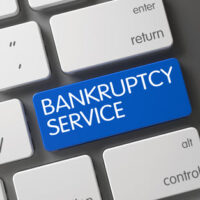All About Bankruptcy And Your Bank Accounts

When you file for bankruptcy, you may think about all your property, but don’t forget about your bank accounts. Because most people who file for bankruptcy don’t have huge balances or huge deposits, bank accounts are often overlooked. Here’s some information on how your bank accounts are treated when you file for bankruptcy.
Your Balance on the Day of Filing
Like many people, your balance may go up and down during certain times of the month. When you file for bankruptcy, the amount that is in your account when you file is the amount that can be taken by the bankruptcy trustee (whatever amount can’t be exempted or protected).
That means that if your account does go up and down, you may want to wait to file during a time of the month or week when your account is at its lowest. Even if the money would be exempt, you will have to exempt less of it, freeing your exemptions for other things.
Remember that it’s the total amount that appears in your account on the day that you file that matters. The fact that you may have pending withdrawals, or bills coming up to pay, doesn’t matter in bankruptcy.
Setoffs By the Bank
In some cases, your bank may have a right to withdraw money from your account and pay itself for amounts that you owe to it. This may include mortgages, loans, overdraft fees, or other fines or fees that are incurred on your account.
This automatic right to setoff is often triggered when you file for bankruptcy. The problem is that many of the fees or debts that the bank will take from you to pay itself would be discharged in the bankruptcy. That means that you could lose exempt (protected) money to pay debts that you would not have to pay.
You can often avoid this problem by opening a new account at an institution that you do not owe money to before filing for bankruptcy.
Freezing Accounts
Sometimes banks will freeze bank accounts when they get notice that you have filed for bankruptcy. Supposedly, this is so that the bank can “protect” your assets, in case they are the property of the bankruptcy trustee or your creditors.
After you file, if the money in your (frozen) account is exempt, the trustee will instruct the bank to release the funds and release the hold on the account. Still, the delay in doing so can create a hardship for debtors.
To be safe you may want to withdraw cash from your account before you file (remember to keep receipts of the withdrawal, and you will still need to claim the cash on your bankruptcy paperwork). Additionally, you may want to pay vital creditors – rent, utilities, etc. -before you file, just in case access is cut off for a few days.
Call the West Palm Beach bankruptcy lawyers at Kelley Kaplan & Eller at 561-264-6850 for help with all aspects of your bankruptcy life.



